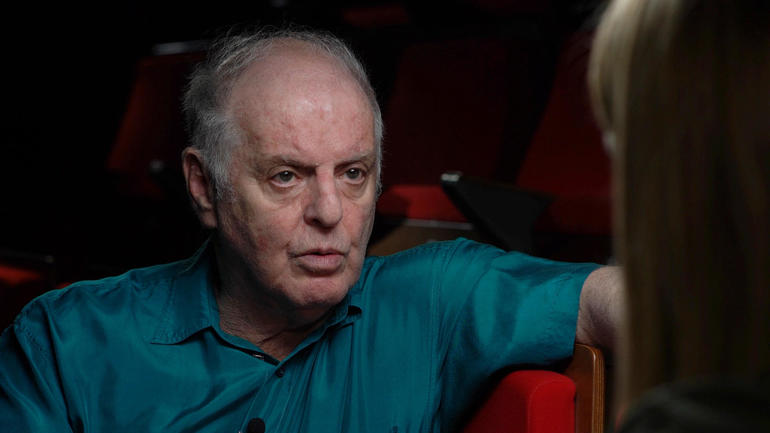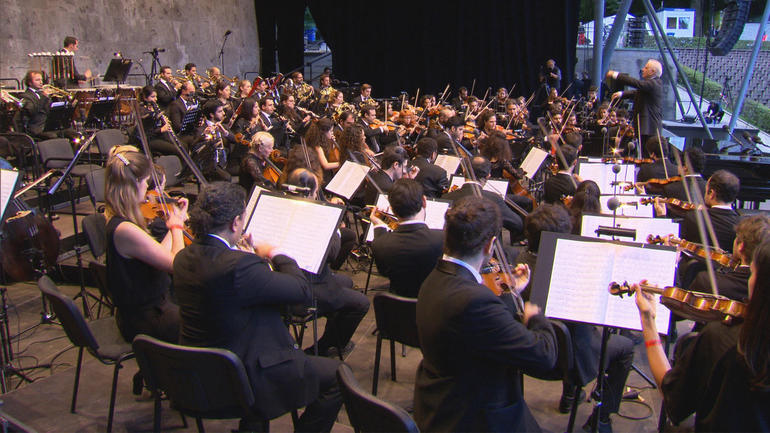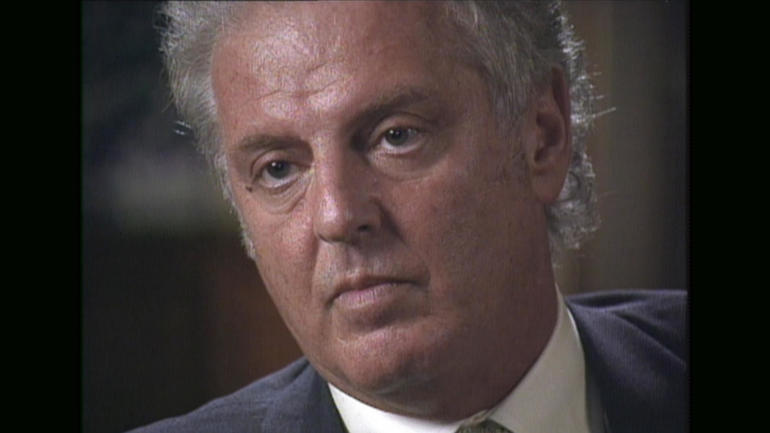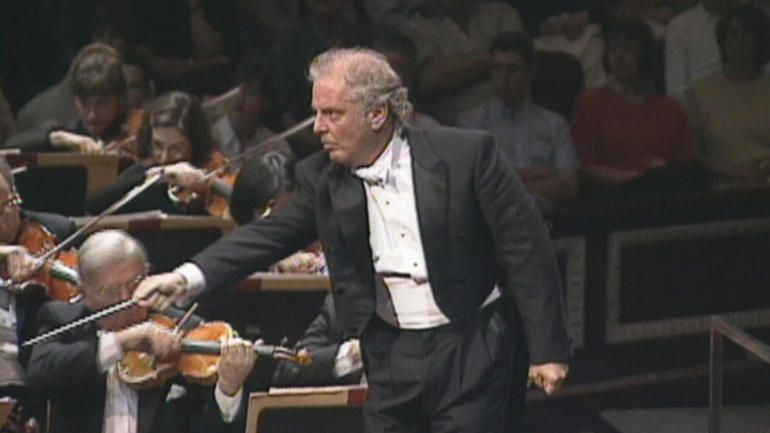At a concert last August in Berlin, the audience was German, the music was Russian, and the musicians were inspiring: a mix that included Iranians, Syrians, Palestinians and Israelis.
They’re members of the West-Eastern Divan Orchestra, co-founded and led by conductor Daniel Barenboim. This week on 60 Minutes, correspondent Holly Williams profiles Barenboim and his remarkable orchestra. It was the second time in 20 years that 60 Minutes’ viewers had the chance to spend an evening with the multi-talented maestro.

Daniel Barenboim speaks to Holly Williams on this week’s 60 Minutes

The West-Eastern Divan Orchestra at a concert last August in Berlin
Barenboim, who is also a distinguished concert pianist, grew up in Israel. He came up with the idea for the West-Eastern Divan orchestra 20 years ago, along with his friend Edward Said, the late Palestinian scholar. The goal was to find young musicians from across the Middle East and to bring them together for a few months a year, giving them an opportunity to play on the world’s most prestigious stages.
As Williams reports, some musician, like one Syrian violinist 60 Minutes spoke to, are living in exile as war rages at home. Others risk punishment from their governments for performing with Israelis. But when they take the stage together, political differences surrender to something of a musical utopia. The video below shows the orchestra performing the opening number from their concert in Berlin last summer: the overture to Mikhail Glinka’s opera “Ruslan and Lyudmila.”
60 Minutes first met Barenboim in 1998, when he was holding two full-time jobs as music director of both the Berlin State Opera and the Chicago Symphony Orchestra. He was also traveling the world as a guest conductor and pianist. After a week of trying to keep up with Barenboim’s hectic schedule and boundless energy, correspondent Bob Simon remarked that the conductor was “not only a musical genius, but a 56-year-old child.”
When he was a child, Barenboim was a prodigy. As a young boy, he performed with world-renowned orchestras and memorized the complete piano works of Mozart, Beethoven, and Brahms. Simon tested his musical memory by calling out Mozart sonatas at random, which Barenboim remembered note for note.

Daniel Barenboim in 1998
“Bob Simon and I were compelled to do the story,” says 60 Minutes producer Michael Gavshon, who produced both the broadcast’s 1998 story and the 2018 story on Barenboim. “He’s such a passionate musician, and his work conducting and his recitals are so unusually powerful.”
Gavshon says he continued to follow the maestro’s career over the next 20 years and patiently waited to tell the story of Barenboim’s West-Eastern Divan orchestra. Unfortunately, he wasn’t able to do it before Simon died a car crash in 2015.
“It’s bittersweet,” he says. “It was wonderful to be able to the story of Barenboim’s second act, but it’s tinged with a great deal of sadness that Bob wasn’t there to do it and wasn’t able to share it with me.”

Barenboim in 1998
Whether it’s playing Mozart’s 21st piano concerto by memory or leading a group of diverse musicians through Tchaikovsky’s 5th symphony, music itself is bittersweet for Barenboim, as he told Simon in 1998.
“There is a tragic element in music, in all music, even in the happiest music,” he said, “because it always gives you the feeling…that it cannot stay, because the sound dies when the note is finished.”
The embedded video was edited by Peter Berman.
© 2018 CBS Interactive Inc. All Rights Reserved.

